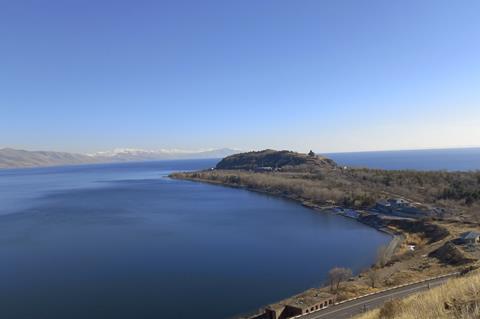Water quality standards should be reviewed to reflect the threat from the spread of antibiotic resistance, a team of scientists has warned.
The ISO 9308-1:2014 standard should include clauses that refer to antibiotic resistance, the scientists from Armenian National Agrarian University said, following the publication of ‘Tetracycline resistance of Escherichia coli isolated from water, human stool and fish gills from the Lake Sevan basin’ in Letters in Applied Microbiology, an Applied Microbiology International publication.
Key source
Lake Sevan is the most important source of fresh water and freshwater fish in the Transcaucasus, the Armenian highlands, and is the main source of irrigation water, fish, and is a centre of recreation and tourism.

“Water pollution might poses a substantial risk to the health of the population and the country’s economy. In this study, the bacteriological quality of waters in the rivers of the Lake Sevan basin and tetracycline-resistant bacteria isolated from fish and people living near the rivers of the Lake Sevan basin in Armenia in autumn 2019 and spring 2020 was assessed,” said corresponding author Dr. Astghik Pepoyan.
“The article touches on fundamental and practical issues. The fundamental issue concerns experimental evidence on the spread of antibiotic resistance through bacteria in the water-animal-human chain.
One Health implications
“Practically, these investigations relate to the One Health concept. When discussing the role of bacteria in “One Health” problems, at first, the pathogenic bacteria (mainly zoonotic) are mentioned. Although non-pathogenic bacteria, which are more common in the environment, can also pose a serious threat to the environment; it is not correct to ignore the role of non-pathogenic bacteria in One Health studies.
“Regarding the practical significance of the article, based on this research data we suggest a review of water quality standards and, in particular, the ISO 9308-1:2014 standard. This standard should include clauses that refer to antibiotic resistance.
“Thus, the possible spread of antibiotic resistance through non-pathogenic and conditional pathogenic bacteria in interacting ecosystems and the need to review water quality standards were demonstrated by us in this work.”
Worldwide AMR threat
The work took place against a backdrop of a significant increase in the spread of antibiotic-resistant bacteria in various ecosystems, which is dangerous both from a health and agricultural point of view.
“Antibiotic-resistant non-pathogenic bacteria have been isolated from water, soil, aquatic and terrestrial animals, and humans; there are quite a lot of scientific studies on this. In these studies, we tried to find out whether resistance to antibiotics can be spread by bacteria in interacting ecosystems,” said Dr Pepoyan.
The team examined the tetracycline-resistance of bacteria from the waters of the Lake Sevan basin, fish from rivers and people living near rivers.

The results showed that most of the waters carried Edwardsiella spp., Erwinia spp., Morganella spp., and Proteus spp. in addition to pathogenic and commensal Escherichia coli; the coliform index did not exceed the standard level.
Water purity standards
“The possible spread of antibiotic resistance through pathogenic and non-pathogenic bacteria in interacting ecosystems and the need to review water quality standards were demonstrated by us in this work,” Dr Pepoyan said.
“The results obtained contribute to the assessment of the “purity” of ecosystems in terms of the spread of antibiotic resistance, and contribute to the suggestions and solutions to the problems of One Health.
“From a practical point of view, the study is the basis for changes to ISO 9308-1:2014.”
This study was planned and carried out under Dr Pepoyan’s supervision at the Armenian National Agrarian University.
The work was supported by the State Committee of Science Armenia (21AG-4D065) and in part by the Ministry of Science and Higher Education of the Russian Federation (Project Number 075-15-2019-1880).
‘Tetracycline resistance of Escherichia coli isolated from water, human stool and fish gills from the Lake Sevan basin’ is published in Letters in Applied Microbiology.
Supporting documents
Click link to download and view these filesSevan1
Other, FileSizeText 1.5 mb
Topics
- AMR in the Environment
- Antimicrobial Resistance
- Applied Microbiology International
- Armenia
- Armenian National Agrarian University
- Asia & Oceania
- Astghik Pepoyan
- Bacteria
- Clean Water
- Community
- Edwardsiella
- Erwinia
- ISO 9308-1:2014 standard
- Lake Sevan
- Morganella
- One Health
- Proteus
- Research News
- Russian Federation
- Tetracycline
- water quality







No comments yet